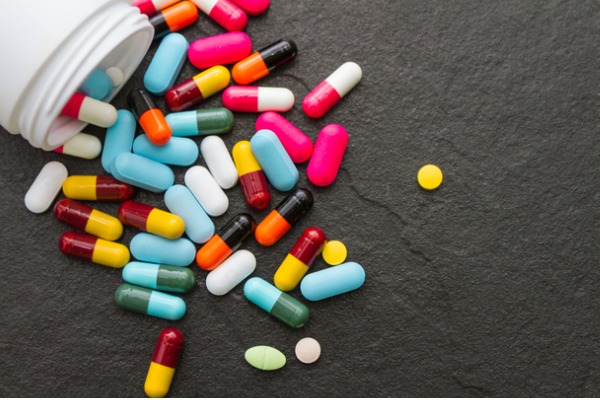Optimistic GSK is a serious contender after these results
Its share price performance hasn't always been spectacular, but the drug major is a reliable business paying a decent dividend. ii's head of markets picks out the highlights from these full-year results.
31st January 2024 08:37
by Richard Hunter from interactive investor

GSK (LSE:GSK) has delivered a reminder that it remains a serious player on the global stage, with successful product launches being followed by a strong pipeline of potential new drugs.
The long-term potential of the sector is not in question, as moves towards personalised medicine and growing middle classes in emerging markets provide possibilities for endless demand.
Meanwhile, the move away from the “white pills and Western markets” model , a phrase which Glaxo coined some years ago, is translating into a more specialised business, which was confirmed by the spin-off of its consumer healthcare unit Haleon (LSE:HLN) in 2022.
- Invest with ii: Open a Stocks & Shares ISA | ISA Investment Ideas | Transfer a Stocks & Shares ISA
Highlights for the year included the launch of its Arexvy vaccine, which combats Respiratory Syncytial Virus (RSV) in adults over 60, with the company currently attempting to lower the age threshold to 50. The vaccine was launched in the US last autumn and already has an estimated two-thirds market share, with sales of over £1.2 billion so far.
Meanwhile, in its Europe and International business the continued strong uptake of its shingles vaccine Shingrix resulted in sales of £3.4 billion.
The pipeline is equally important, with revenues for the group as a whole being fairly evenly split between its Vaccines, Specialty Medicines and General Medicines units. In terms of Vaccines and Specialty Medicines, where most potential for future growth lies, there are currently 71 products now in clinical development, and importantly 18 of these are in the final stages (Phase III) of regulatory approval.
The company’s strong cash generative ability enables it to keep its foot to the floor on Research and Development, which is also being supplemented by specialist bolt-on acquisitions and licence agreements which enable a wider scope of potential drugs to be introduced.
Overall sales grew by 5%, underneath which Vaccines jumped by 25% and HIV sales by 13%. Adjusted operating profit saw growth of 12% to £8.8 billion, while the dividend was increased with a projected yield of 3.9%, and most of the key metrics surpassed analyst expectations.
Guidance had previously been raised at an upbeat third-quarter update, and the company’s outlook for the next year is equally optimistic, pointing to adjusted operating profit growth of between 7% and 10%, and turnover growth of between 5% and 7%. In addition, 12 major launches will become due in 2025, ranging across infectious diseases, HIV, respiratory and oncology products.
- 10 shares to give you a £10,000 annual income in 2024
- The Week Ahead: Diageo, GSK, Shell, BT
- Stockwatch: new reason to buy this defensive FTSE 100 share
One of the factors which tends to weigh down on pharmaceutical companies is the existence of patent expiries, to which GSK is inevitably exposed, whereby significantly profitable products become generic and therefore cheaper in the marketplace.
Quite apart from this unavoidable cost of doing business, for GSK there are also some concerns around elevated costs, and a slight decline in sales at the Specialty Medicines business. More ominous is the constant threat for drug companies of potential litigation for unintended side-effects for new products. Indeed, GSK is currently in ongoing litigation over its heartburn medication Zantac amid allegations linking the drug with certain types of cancer.
Even so, GSK is a player within an important human field where the possibilities for drug solutions are seemingly endless. Its exposure to the US, which accounts for 52% of overall revenues, provides particularly lucrative possibilities, while Europe (22%) and International (26%) give geographical diversification as well as the occasional country-specific drug which can dominate the local market.
- Stockwatch: this share’s not just about the 7% dividend yield
- Trading Strategies: expect appeal of this cyclical share to grow
- Bed and ISA: the handy tax trick to boost your wealth
The road to pharmaceutical success is long and arduous and for the most part the major companies make incremental progress given the cost and timescales involved in discovering and developing new drugs.
That being said, GSK has performed relatively well over the last year, with the shares having risen by 9%, which compares to a dip of 1.4% for the wider FTSE100 index. While AstraZeneca (LSE:AZN) remains the preferred play in the sector, this update provides proof that GSK is a serious contender, which could prompt some upgrades to the current market consensus of the shares as a 'strong hold'.
These articles are provided for information purposes only. Occasionally, an opinion about whether to buy or sell a specific investment may be provided by third parties. The content is not intended to be a personal recommendation to buy or sell any financial instrument or product, or to adopt any investment strategy as it is not provided based on an assessment of your investing knowledge and experience, your financial situation or your investment objectives. The value of your investments, and the income derived from them, may go down as well as up. You may not get back all the money that you invest. The investments referred to in this article may not be suitable for all investors, and if in doubt, an investor should seek advice from a qualified investment adviser.
Full performance can be found on the company or index summary page on the interactive investor website. Simply click on the company's or index name highlighted in the article.